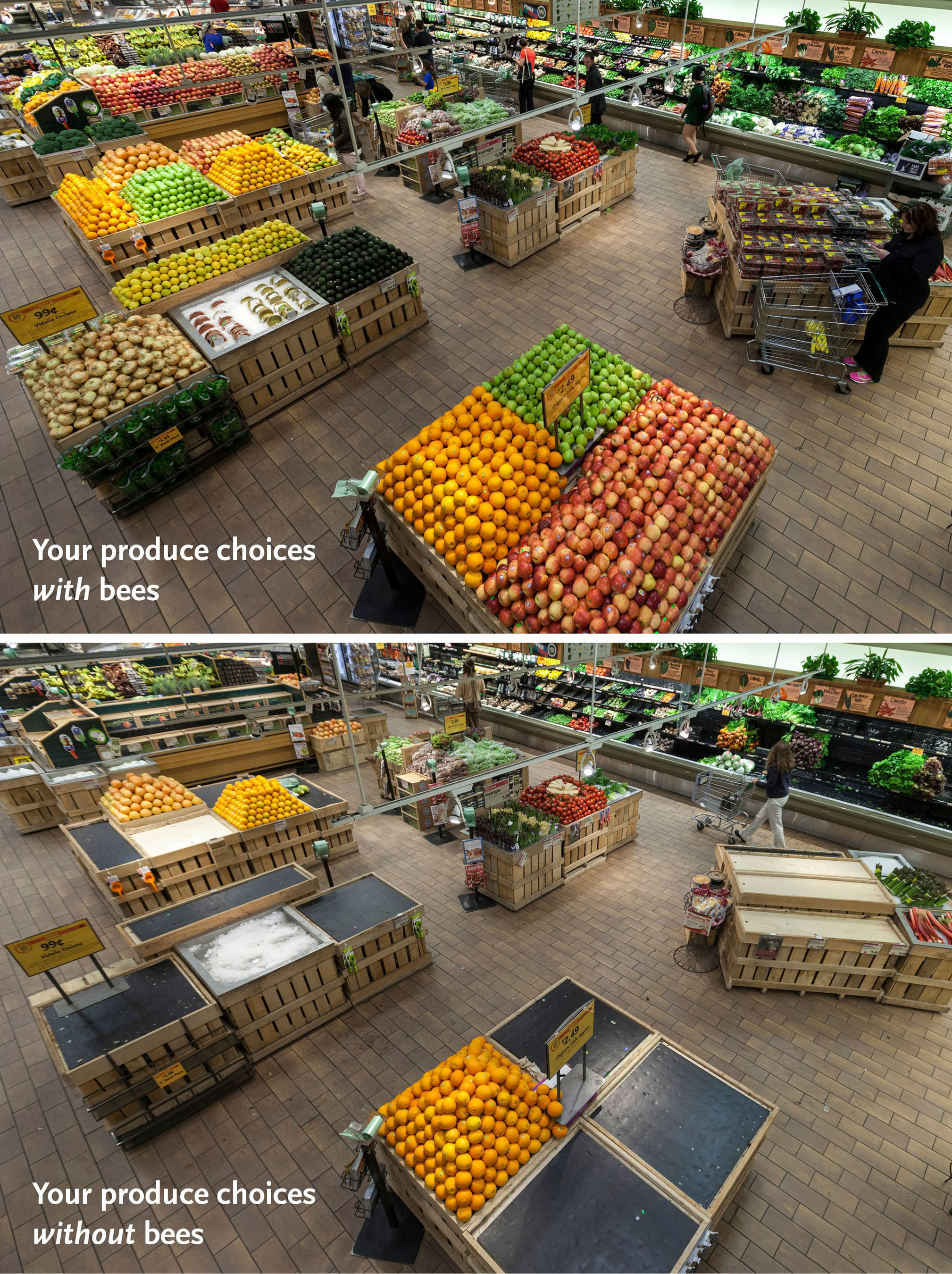
As you know, bees and all of the challenges surrounding them right now are very close to my heart, so I was very excited to see that Whole Foods is working towards positive change for our friendly pollinators.
Here is the story posted on the Whole Foods media page:
PROVIDENCE, RI (June 14, 2013) – One of every three bites of food comes from plants pollinated by honeybees and other pollinators, and pollinator populations are facing massive declines. At Whole Foods Market in University Heights, Rhode Island, some customers recently found out just how this may affect their lives.
To raise awareness of just how crucial pollinators are to our food system, the University Heights Whole Foods Market store removed all produce that comes from plants dependent on honeybees and other pollinators:
The before-and-after photo (above) is shocking – as are the statistics. Whole Foods Market’s produce team pulled from shelves 237 of 453 products – 52 percent of the normal product mix in the department. Among the removed products were some of the most popular produce items:
Apples
Onions
Avocados
Carrots
Mangos
Lemons
Limes
Honeydew
Cantaloupe
Zucchini
Summer squash
Eggplant
Cucumbers
Celery
Green onions
Cauliflower
Leeks
Bok choy
Kale
Broccoli
Broccoli rabe
Mustard greens
That’s the bad news. The good news is: it’s not too late. To help support honeybee populations, Whole Foods Market today launches a partnership with The Xerces Society. For every pound of organic summer squash sold at Whole Foods Market stores from June 12-25, the company will donate 10 cents to The Xerces Society for pollinator preservation.
“We don’t always notice it when walking down a grocery aisle, but pollinators are a critical link in our food system. More than 85% of the plant species on earth require bees and other pollinators to exist, and these plants include some of the most nutritious parts of our diet. Despite their importance, we continue to see alarming declines in bee numbers,” said Eric Mader, Assistant Pollinator Conservation Director at The Xerces Society. “On a positive note however, with the support of Whole Foods Market and their vendors, our organization is working with farmers nationwide to help them create wildflower habitat on field edges and to adopt less pesticide-intensive practices. Even on a small scale, these simple strategies can tip the balance back in favor of our bees.”
Additionally, there is also a WF Share the Buzz page that gives some good tips on how everyone can take small steps to help the bees.
Of course Whole Foods is not without it’s faults, but I am grateful for this initiative. Large corporation like WF can help spread the word to large quantities of people who may not have any idea about what’s happening with our bees and help ignite a fire beneath those who know but choose to look the other way. That voice, that reach, is a good thing 😉
xoxo,
M
(Visited 101 times, 1 visits today)



